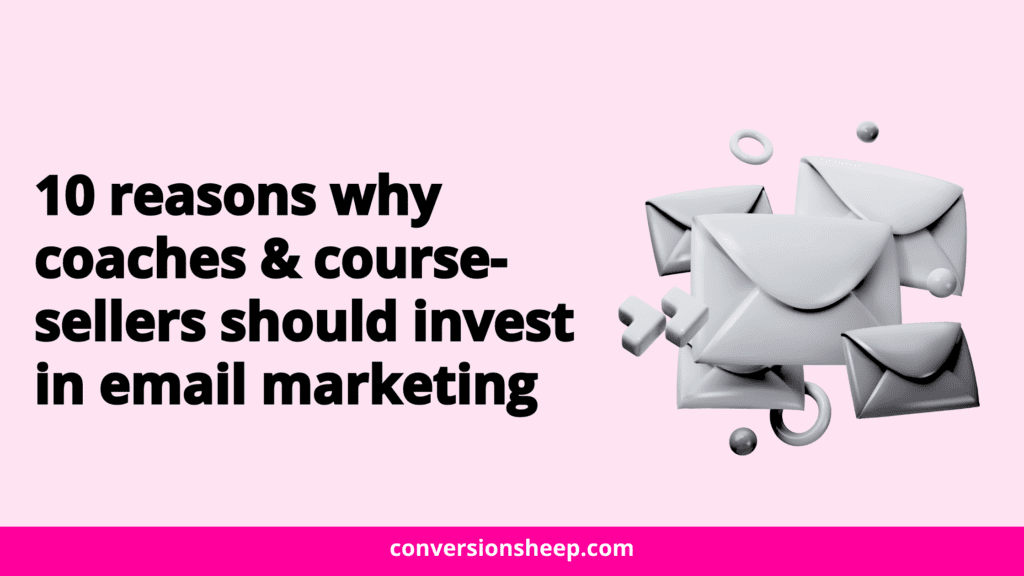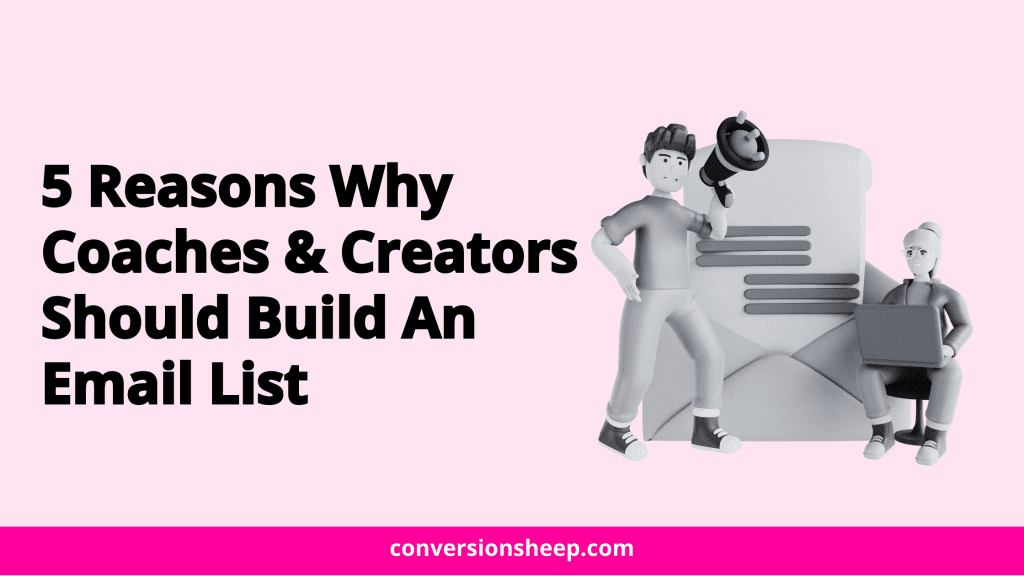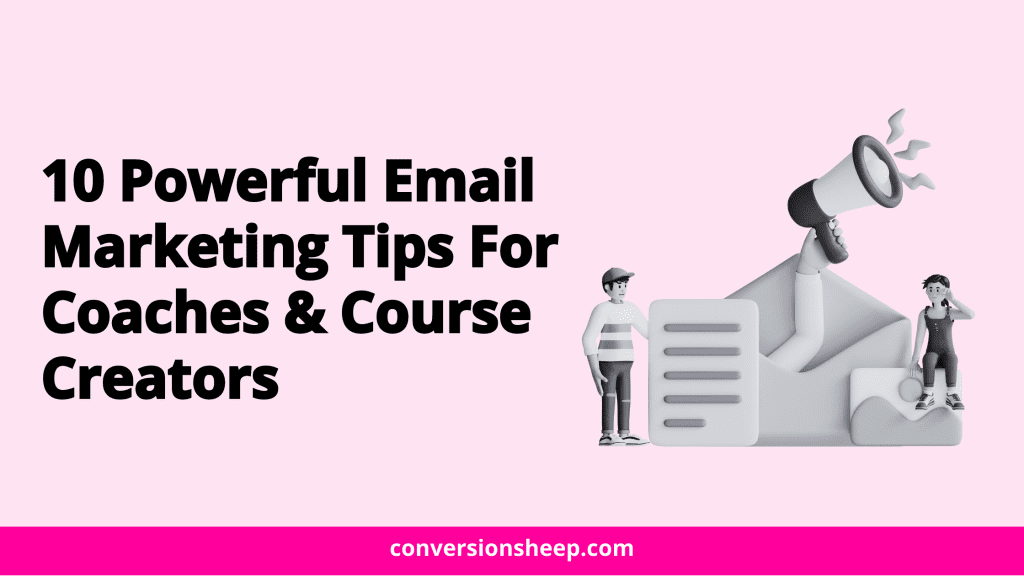Investing in email marketing is a wise decision for coaches looking to grow their coaching businesses.
Email marketing offers numerous benefits that can help coaches connect with potential clients, nurture relationships, and ultimately increase their client base.
What you’ll learn in this article
Here are 10 reasons why coaches should invest in email marketing:
Direct Communication Channel
Email is a direct and personal communication channel, allowing coaches to reach potential clients without relying on social media algorithms or other intermediaries.
For example, coaches can send personalized emails to potential clients who have expressed interest in their coaching services, addressing their specific needs and questions.
Building Credibility and Trust
Consistent email communication can help coaches establish themselves as credible and trustworthy experts in their coaching niches.
Coaches can share success stories, client testimonials, and valuable insights through email newsletters, demonstrating their expertise and building trust among subscribers.
Example: A career coach might send out a monthly newsletter with success stories from clients who have landed their dream jobs or achieved career milestones after working with the coach.
Targeted Marketing
Email marketing allows coaches to segment their email lists and send targeted content to different groups of potential clients.
This ensures that the content is highly relevant to each subscriber’s interests and needs, increasing the likelihood of engagement and conversion.
Example: A health and wellness coach can segment their list into categories like weight loss, stress management, and fitness, and send tailored tips and offers to each group.
Lead Nurturing
Email marketing is an effective tool for nurturing leads over time.
Coaches can send a series of automated emails to potential clients, educating them about the benefits of coaching, addressing common objections, and gradually moving them toward scheduling a consultation or signing up for a coaching program.
Example: A life coach can set up a lead nurturing email sequence that starts with an introductory email, followed by emails addressing specific life challenges and how coaching can help overcome them.
Time-Effective Marketing
Coaches often have limited time to devote to marketing efforts.
With email marketing, they can create automated email sequences, newsletters, and campaigns in advance and schedule them to be sent at specific times. This frees up time for coaches to focus on other aspects of their coaching business.
Example: A leadership coach can pre-schedule weekly leadership tips and insights to be delivered to their subscribers without constant manual effort.
Promotions and Special Offers
Coaches can use email marketing to promote their coaching packages, courses, or workshops.
By sending out exclusive offers, discounts, or early access to subscribers, coaches can encourage potential clients to take action and invest in their coaching services.
Example: A business coach may offer a limited-time discount on a new entrepreneurship course to their email subscribers, creating a sense of urgency and motivating potential clients to enroll.
Relationship Building
Email marketing fosters ongoing relationships with subscribers.
Coaches can send regular updates, tips, and valuable content that keeps potential clients engaged and connected with the coach’s brand.
Example: A relationship coach can send weekly relationship advice and communication tips to their subscribers, helping them build healthier relationships over time.
Feedback and Surveys
Coaches can use email marketing to gather feedback from subscribers or clients.
Sending surveys or feedback requests via email allows coaches to gain valuable insights into what their audience needs and how they can improve their coaching services.
Example: A personal development coach may send a survey to their email list to understand the specific challenges their potential clients are facing and tailor their coaching programs accordingly.
Re-engaging Inactive Clients
Email marketing is an excellent way to re-engage potential clients who have gone inactive.
Coaches can send reactivation emails or exclusive content to inactive subscribers, encouraging them to rekindle their interest in coaching.
Example: A career coach can send an email with a free resource to dormant subscribers, sparking their interest and prompting them to re-engage with the coach’s content and services.
Analytics and Optimization
Email marketing platforms provide detailed analytics that coaches can use to track the performance of their campaigns.
This data helps coaches understand what content resonates with their audience, what converts the best, and where improvements can be made.
Example: An executive coach can analyze email open rates and click-through rates to determine which subject lines and content topics generate the most interest, allowing for optimization in future email campaigns.
CONCLUSION
In conclusion, email marketing is a powerful tool for coaches to connect with potential clients, nurture relationships, and grow their coaching businesses.
It offers a direct communication channel, the ability to build credibility and trust, and the opportunity for targeted marketing and lead nurturing.
Moreover, it is time-effective, allows for promotions and special offers, and supports relationship building.
Coaches can also use email marketing for feedback and surveys, re-engaging inactive clients, and benefit from analytics and optimization to continually improve their marketing strategies.
By investing in email marketing, coaches can create a strong online presence and develop lasting connections with potential clients, ultimately leading to increased client acquisition and business growth.



